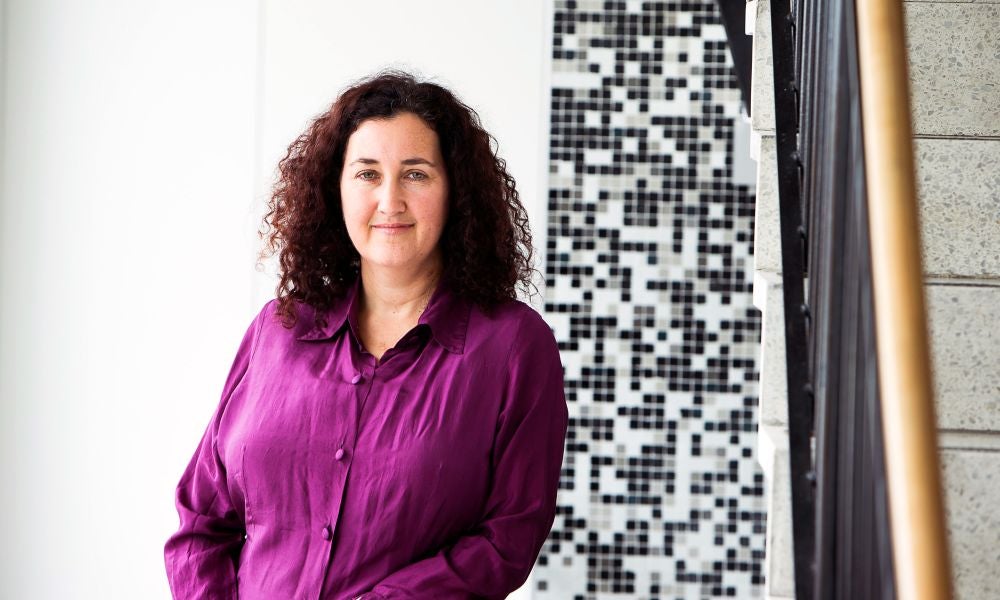Beyond the pitch: The changing face of angel investment
Angel investment groups play a crucial role in capital allocation for start-ups seeking early-stage funding, writes UNSW Business School's Jo-Ann Suchard
The success of entrepreneurial firms is critical to economic growth and prosperity, employment and innovation. Approximately $4 billion was invested in Australian entrepreneurial firms in 2024 by angel and venture capital investors (Techboard, Cuthrough and Folklore Ventures). While angel investment accounts for a small percentage of these investments in dollar terms, they are a key source of very early-stage financing for start-up companies. For example, Clarity Pharmaceuticals, which develops next-generation radiopharmaceutical products that improve treatment outcomes for children and adults with cancer, received an angel investment of $450,000 in 2012. The company raised an additional $312 million, listed on the ASX in August 2021 and is now one of the ASX’s biggest biotechs with a market capitalisation of $1.1 billion.
Angel investors invest their own wealth and tend to invest at the pre-seed stage where many start-ups are more likely to be in their initial development phase and may not yet be generating revenue. As investing in start-up companies is inherently risky, particularly at the very early stage, angel investors typically seek to invest in start-ups that are scalable and have high growth potential. Over half of early-stage investments typically fail to return any capital, with the top 10% usually providing 85-90% of returns.
Many angels take an active role in the start-ups they invest in and can offer strategic advice, resources and access to their networks to support growth. Investors can invest individually or as part of an angel group or syndicate. The Australian angel investment landscape has evolved since the first angel groups were formed in the mid-2000s, with initiatives aimed at increasing diversity among investors and making angel investing more accessible.

Angel investors and start-up selection
Angel investors, similar to venture capitalists, may be approached by hundreds of early-stage companies seeking funding. Angels typically select a small number of start-ups for more detailed evaluation and some of these start-ups go on to receive investment. However, most research on the factors that impact the selection of start-ups is based on survey evidence and there is a lack of statistics available on the success rates of Australian early-stage startups when applying for capital.
Recent research that I undertook with Sydney Angels analysed the characteristics that investors initially consider when selecting start-ups to further evaluate for funding. Sydney Angels was established in 2008 and is one of the oldest Australian angel groups. Members and sidecar funds have invested $41 million into 91 early-stage start-ups that have gone on to raise an additional $780 million in capital in later rounds.
Sydney Angels is unique in Australia in that it has a structured evaluation process and a team-based approach where members collaborate to screen and evaluate start-ups for investment. There are six funding cycles per year and approximately 40 start-ups apply for funding in each cycle. Six start-ups each cycle are selected to present a 10-minute pitch and Q&A session to a panel of approximately 20 members. Three start-ups are then selected to pitch to all members. Interested members form syndicates who undertake due diligence and individual members then may choose to invest.
Read more: Should governments run venture capital and private equity funds?
The study includes 1302 early-stage companies that applied for funding with Sydney Angels between 2014 and 2021. The applicants are from diverse industries – software firms accounted for 25% of applications, followed by consumer products/services (12%). The funding and success of each company were tracked until 2023 or exit. Funding rounds may not be disclosed by companies and so the analysis may understate funding success rates.
Early-stage funding success
Start-ups applied for a total of $942 million of funding over the 8-year period. Approximately 28% of applicants received early-stage funding from Sydney Angels or other investors and raised a total of $2.2 million on average (from the first round until 2023). While the size of the Australian angel market is much smaller than the US, the percentage of applicants raising capital compares favourably to the US market (a success rate of 24.4% in 2023, according to the Centre for Venture Research). The Australian success rates (which varied between 22% in 2016 to 36% in 2020) support the notion of an evolving market for early-stage funding.
Sydney Angels invested in 3.9% of applicants over the 8-year period (as the number of potential investments is capped by the structure of the evaluation process). However, start-ups that were funded by Sydney Angels raised a significantly higher total number of rounds and were more likely to be exited compared to start-ups funded by other investors.
How have start-ups applying for funding changed since 2014?
The 8 years of application data demonstrate some key trends in the characteristics of Australian early-stage companies applying for funding. Companies are now applying at an earlier stage for funding. More than half of firms applying in 2014 had a product and 9% had revenue compared to 18.5% with a product and 4.6% with revenue in 2021. The amount of capital sought has remained stable at around $600,000. However, there has been an increase in the valuation of early-stage companies applying for funding (an average increase of 76%), even though the companies are at an earlier stage.

Female-led firms made up 16.9% of applicants overall and the percentage of female-led firms applying each year has increased slightly over the period. Female-led firms were not significantly different to male-led firms in terms of the capital sought, valuation, or the percentage with revenue or product. However, a significantly higher percentage of female-led firms (39.5%) received funding than male-led firms (25.9%).
This trend was more pronounced for Sydney Angels where 6.36% of female-led firms received funding compared to male-led firms (3.4%). Further, female and male-led firms, on average, raised similar amounts of capital. This suggests that at the early stage, the gender gap in financing may be reducing further than implied by reported statistics which are based on the percentage of funded firms (and do not account for the higher number of male-led firms that apply for funding). Continued action is required to address the factors that impede women from becoming founders.
Which factors impact initial selection of start-ups for further evaluation?
Sydney Angels' initial screening of start-ups is based on a two-page summary application. Screening members have diverse backgrounds – 44% had founder experience, and on average, 11% of screening members for an applicant firm had management or founder experience in the same industry as the applicant. The statistical analysis controlled for industry and year of application.
Start-ups were more likely to be selected to proceed to the next stage of the evaluation process if they had received previous funding (eg from grants, accelerators, family and friends), had revenue or product or were female-led. The amount of capital sought and valuation did not impact selection at the initial screening stage. Specific educational or industry experience of screening members did not generally influence company selection which supports including screening members with a diversity of industry and founder experience.
Subscribe to BusinessThink for the latest research, analysis and insights from UNSW Business School
Implication and insights for founders and angel investors
The analysis provides insights for founders into the Australian early-stage funding landscape. Not all start-ups are suitable or attractive to angel investors. Founders should assess the suitability or fit of potential investors for their start-up in terms of the investor's prior investments and amounts invested, their investment process and criteria, as well as what investors offer to founders beyond the capital.
For angel investors, particularly newer investors, angel groups or a collaborative approach may provide investors with opportunities to develop knowledge and skills and benefit from shared expertise when evaluating start-ups. The evidence on the funding success rates of start-ups applying for angel funding indicates a potentially sustainable Australian market over the longer term where funding application success rates in the 20-25% range have historically been indications of a sustainable market in the US.
Jo-Ann Suchard is an Associate Professor in Banking and Finance at UNSW Business School. She has conducted pioneering research on the Australian and Chinese venture capital and private equity markets. She has won both Australia Research Council Linkage and Discovery grants for research in this area. She has also undertaken research in conjunction with government and industry partners including AVCAL and the Innovation Division, Department of Industry.
